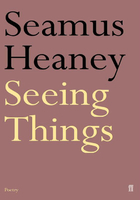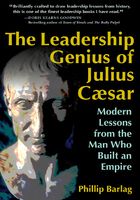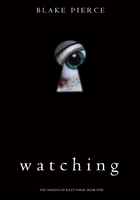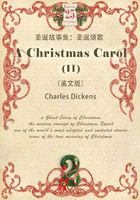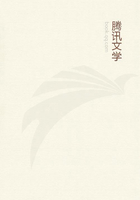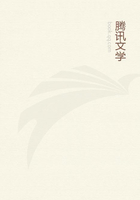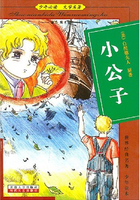The world is so taken up of late with novels and romances, that it will be hard for a private history to be taken for genuine, where the names and other circumstances of the person are concealed, and on this account we must be content to leave the reader to pass his own opinion upon the ensuing sheet, and take it just as he pleases.
The author is here supposed to be writing her own history, and in the very beginning of her account she gives the reasons why she thinks fit to conceal her true name, after which there is no occasion to say any more about that.
It is true that the original of this story is put into new words, and the style of the famous lady we here speak of is a little altered; particularly she is made to tell her own tale in modester words that she told it at first, the copy which came first to hand having been written in language more like one still in Newgate than one grown penitent and humble, as she afterwards pretends to be.
The pen employed in finishing her story, and making it what you now see it to be, has had no little difficulty to put it into a dress fit to be seen, and to make it speak language fit to be read. When a woman debauched from her youth, nay, even being the offspring of debauchery and vice, comes to give an account of all her vicious practices, and even to descend to the particular occasions and circumstances by which she ran through in threescore years, an author must be hard put to it wrap it up so clean as not to give room, especially for vicious readers, to turn it to his disadvantage.
All possible care, however, has been taken to give no lewd ideas, no immodest turns in the new dressing up of this story; no, not to the worst parts of her expressions. To this purpose some of the vicious part of her life, which could not be modestly told, is quite left out, and several other parts are very much shortened. What is left 'tis hoped will not offend the chastest reader or the modest hearer; and as the best use is made even of the worst story, the moral 'tis hoped will keep the reader serious, even where the story might incline him to be otherwise. To give the history of a wicked life repented of, necessarily requires that the wicked part should be make as wicked as the real history of it will bear, to illustrate and give a beauty to the penitent part, which is certainly the best and brightest, if related with equal spirit and life.
It is suggested there cannot be the same life, the same brightness and beauty, in relating the penitent part as is in the criminal part. If there is any truth in that suggestion, I must be allowed to say 'tis because there is not the same taste and relish in the reading, and indeed it is to true that the difference lies not in the real worth of the subject so much as in the gust and palate of the reader.
But as this work is chiefly recommended to those who know how to read it, and how to make the good uses of it which the story all along recommends to them, so it is to be hoped that such readers will be more leased with the moral than the fable, with the application than with the relation, and with the end of the writer than with the life of the person written of.
There is in this story abundance of delightful incidents, and all of them usefully applied. There is an agreeable turn artfully given them in the relating, that naturally instructs the reader, either one way or other. The first part of her lewd life with the young gentleman at Colchester has so many happy turns given it to expose the crime, and warn all whose circumstances are adapted to it, of the ruinous end of such things, and the foolish, thoughtless, and abhorred conduct of both the parties, that it abundantly atones for all the lively description she gives of her folly and wickedness.
The repentance of her lover at the Bath, and how brought by the just alarm of his fit of sickness to abandon her; the just caution given there against even the lawful intimacies of the dearest friends, and how unable they are to preserve the most solemn resolutions of virtue without divine assistance; these are parts which, to a just discernment, will appear to have more real beauty in them all the amorous chain of story which introduces it.
In a word, as the whole relation is carefully garbled of all the levity and looseness that was in it, so it all applied, and with the utmost care, to virtuous and religious uses. None can, without being guilty of manifest injustice, cast any reproach upon it, or upon our design in publishing it.
The advocates for the stage have, in all ages, made this the great argument to persuade people that their plays are useful, and that they ought to be allowed in the most civilised and in the most religious government; namely, that they are applied to virtuous purposes, and that by the most lively representations, they fail not to recommend virtue and generous principles, and to discourage and expose all sorts of vice and corruption of manners; and were it true that they did so, and that they constantly adhered to that rule, as the test of their acting on the theatre, much might be said in their favour.
Throughout the infinite variety of this book, this fundamental is most strictly adhered to; there is not a wicked action in any part of it, but is first and last rendered unhappy and unfortunate; there is not a superlative villain brought upon the stage, but either he is brought to an unhappy end, or brought to be a penitent; there is not an ill thing mentioned but it is condemned, even in the relation, nor a virtuous, just thing but it carries its praise along with it. What can more exactly answer the rule laid down, to recommend even those representations of things which have so many other just objections leaving against them? namely, of example, of bad company, obscene language, and the like.
Upon this foundation this book is recommended to the reader as a work from every part of which something may be learned, and some just and religious inference is drawn, by which the reader will have something of instruction, if he pleases to make use of it.
All the exploits of this lady of fame, in her depredations upon mankind, stand as so many warnings to honest people to beware of them, intimating to them by what methods innocent people are drawn in, plundered and robbed, and by consequence how to avoid them. Her robbing a little innocent child, dressed fine by the vanity of the mother, to go to the dancing-school, is a good memento to such people hereafter, as is likewise her picking the gold watch from the young lady's side in the Park.
Her getting a parcel from a hare-brained wench at the coaches in St. John Street; her booty made at the fire, and again at Harwich, all give us excellent warnings in such cases to be more present to ourselves in sudden surprises of every sort.
Her application to a sober life and industrious management at last in Virginia, with her transported spouse, is a story fruitful of instruction to all the unfortunate creatures who are obliged to seek their re-establishment abroad, whether by the misery of transportation or other disaster; letting them know that diligence and application have their due encouragement, even in the remotest parts of the world, and that no case can be so low, so despicable, or so empty of prospect, but that an unwearied industry will go a great way to deliver us from it, will in time raise the meanest creature to appear again the world, and give him a new case for his life.
There are a few of the serious inferences which we are led by the hand to in this book, and these are fully sufficient to justify any man in recommending it to the world, and much more to justify the publication of it.
There are two of the most beautiful parts still behind, which this story gives some idea of, and lets us into the parts of them, but they are either of them too long to be brought into the same volume, and indeed are, as I may call them, whole volumes of themselves, viz.: 1. The life of her governess, as she calls her, who had run through, it seems, in a few years, all the eminent degrees of a gentlewoman, a whore, and a bawd; a midwife and a midwife-keeper, as they are called; a pawnbroker, a childtaker, a receiver of thieves, and of thieves' purchase, that is to say, of stolen goods; and in a word, herself a thief, a breeder up of thieves and the like, and yet at last a penitent.
The second is the life of her transported husband, a highwayman, who it seems, lived a twelve years' life of successful villainy upon the road, and even at last came off so well as to be a volunteer transport, not a convict; and in whose life there is an incredible variety.
But, as I have said, these are things too long to bring in here, so neither can I make a promise of the coming out by themselves.
We cannot say, indeed, that this history is carried on quite to the end of the life of this famous Moll Flanders, as she calls herself, for nobody can write their own life to the full end of it, unless they can write it after they are dead. But her husband's life, being written by a third hand, gives a full account of them both, how long they lived together in that country, and how they both came to England again, after about eight years, in which time they were grown very rich, and where she lived, it seems, to be very old, but was not so extraordinary a penitent as she was at first; it seems only that indeed she always spoke with abhorrence of her former life, and of every part of it.
In her last scene, at Maryland and Virginia, many pleasant things happened, which makes that part of her life very agreeable, but they are not told with the same elegancy as those accounted for by herself; so it is still to the more advantage that we break off here.

